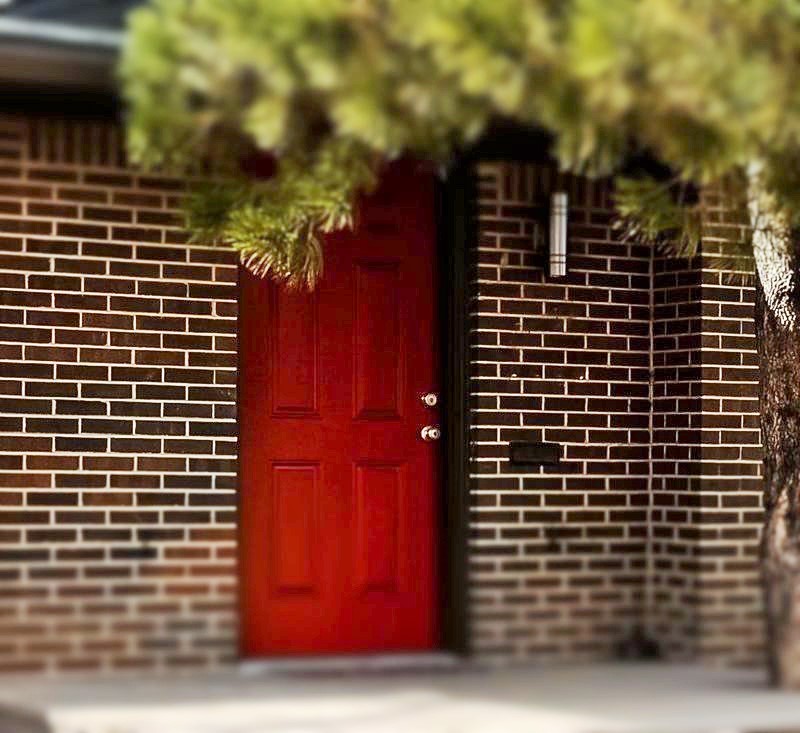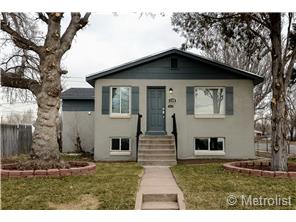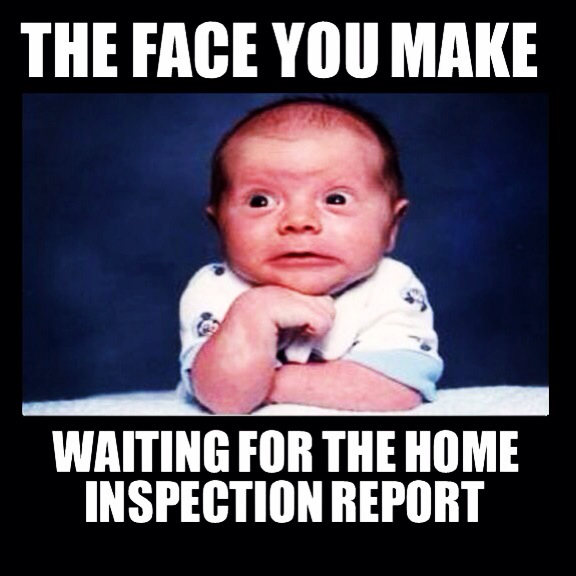Everybody loves Zillow. I love Zillow. I love how excited it gets buyers and sellers when they see a home they love or what a neighbor’s house is selling for; a useful tool in many ways, for better or worse, it empowers the consumer. I look at Zillow to see what my clients/potential clients are taking as accurate information… and then I do my homework. The #Denver #realestate market is moving so quickly that even agents and appraisers can have a hard time keeping up. Public record algorithms don’t have the ability to distinguish the differences in the quality of one property from the other, upgrades, location, or if there’s a crack house next door. Algorithms don’t call other agents to inquire about that “Coming Soon” sign or have the latest data on solds as it takes some time to record.
The Los Angeles Times recently published an article that lays it out quite clearly. Though a “Zestimate” can have a low margin of error, it can also be alarmingly high. Imagine a scenario where you’re meeting with your perspective agent thinking that your home is worth 26% more than what it will really sell for.
Sellers, armed with the Internet, often have an idea in their heads about their home’s value. When I pull comparable properties, show them what the list vs sold prices are and how many days on market it’s taken those homes to sell, they may find a different story. Sometimes the news is good, based upon my data, their home may be worth more than they think. Other times it can be a let down.
Buyers burn the midnight oil searching Zillow then send me a link to their dream home. When I hit the MLS at 7 a.m. most often I find that this dream home is under contract… or sold three months ago. If you’re looking to buy a home, I’ll send you to REColorado, the consumer website linked to the Denver Matrix MLS I use so we can work together efficiently. It’s updated throughout the day, has great home search capabilities and saves me time looking for your real home, not the one someone’s already moving in to.
All this to point out that you now have access to a lot of information about my business. A lot of it is helpful and a whole lot of fun, but none is as accurate as hiring a professional; one who specializes in finding the right home in the right neighborhood that suits your needs. If you’d like an “Exact-i-mate” about what your home might sell for in today’s Denver market, give me a call I’d be glad to sit down with you and show you your market value and why.
Multiple Offer Situation in Denver’s Park Hill Neighborhood
Denver is a crazy-hot real estate market right now with low inventory and multiple offer situations, especially in desirable neighborhoods like Park Hill. Whether you are buying, selling or both, you’ll need to be very prepared and your first step is finding the right Realtor®. Listen to what the Bernuths have to say about their experience.
Jim and Mary Bernuth wanted to downsize from their beautiful Congress Park bungalow to something smaller but with the same charm.We looked at many homes but the heat turned up when their Congress Park beauty went under contract. Like most current sellers, they were nervous about finding the right replacement home and timing both transactions to make a seamless move. We found “The One” and quickly put in an offer… which was rejected. The sale of their home was complicated on the buyers’ side, adding to the stress. Thank you, Jim and Mary, for sharing how it turned out for you and why you recommend TracysDenverHomes for your real estate needs. Click here for more information on the current Denver market.
It’s one thing when I tell you something and quite another when my clients speak for themselves. Over the past decade Kelly and I have worked to turn her real estate dreams into realities. From selling primary and investment properties to buying her own place to finding the perfect home for her blended family, we’ve had some great adventures! Now this lovely Park Hill homeowner shares her experiences working with me and TracysDenverHomes in four real estate transactions. I love working with Kelly and she’s been wonderful about referring me to her family and friends. Forever grateful, Ms. Kelly!
Supply and Demand in Denver’s Real Estate Market
“How’s the Denver real estate market?” Being a Realtor© I’m asked question daily and plenty of things factor into the answer; Rising home prices, consumer demand, lack of inventory, new construction changing the face of our neighborhoods, not keeping up with housing demand, skyrocketing rents, the of effect gas and oil prices, interest rates, affordability index, rates of appreciation and what do I think is the next hot area? But the big idea is supply and demand.
The easiest way to bring all of this info into focus is by rolling out the charts and graphs. Take a look at the “Everything You’ve Wanted to Know About the DenverReal Estate Market” chart below and let’s see what it’s telling us.
See those two lines, the blue one and a yellow one? The yellow line is the number of homes for sale in metro Denver every month from January 2007 to December 2015. The blue line is the number of homes sold every month. Inventory peaked in July 2007 at 30,827 homes for sale. That was at the depth of our economic and housing downturn, when fear ruled our market, banks were being shut down, our local and national economies were in shambles, unemployment was rising, and consumer confidence plummeted. No one wanted to take the risk and buy a home. Reasonable doubt about the future took away our appetite for risk. On the seller side home owners were getting slapped with rising monthly mortgage payments as their Option ARM mortgages adjusted upward, sometimes forcing them to sell at the very worst time.
Supply and demand, baby; prices start to fall (2007 to 2009). Around 2010/2011 the market found some balance with 18,000 to 20,000 homes on the market but, like me in my yoga class, it didn’t stay balanced for long. Supply continued to fall… and you know what that means. Just like dating; it’s all about the inventory!
But let’s stop living in the past. In January 2016, there were 4,286 homes on the market! That’s nearly an all-time low for a January since records have been kept. For the past few years we’ve seen an incredibly strong real estate market in metro Denver as the supply of homes performs a vanishing act, putting the imbalance on the other foot. No three dimensional, super fancy, econometrics model can do a better job of explaining the imbalance in our market than this simple chart, but a 3-D printer might be fun.
I know, blah blah blah, Tracy, what about ME? To which I quip, that depends on what you’d like to do. If you own a home and are thinking of moving, it’s an off-the-hook seller’s market and you can expect to get top value for your home (more on pricing later). You’ll need to think about your next home too, and make sure you have planned the process correctly (this is where my mad skills come in) so the transition from your current to future home is seamless. If you’re buying, make sure you’re pre-approved with a strong lender and have a Realtor© who knows how to write a strong and winning offer. (insert mad skills)
So let’s say you’re renting, or one of those basement-dwelling millennials. With rents zooming to all-time highs, you might want to get out of the (basement) rental rat race and buy a home! You’ll need to cultivate patience and persistence but just in case you missed the earlier piece, the payoff can be YUGE! We expect prices to continue to move up for several years as the inventory balances with the demand, meaning you’ll gain appreciation in your home purchase for the next several years, longer if you stay. You could even turn that first home into a rental property!
There’s no better way to build wealth than owning rental properties for the long term. Home prices have risen, but so have rents, and interest rates remain at record lows. Smart investors don’t try to time the real estate market; it’s as difficult to do as timing the stock market. The vast majority of Americans who have built wealth as real estate investors have done it buying rental property and having their tenants pay it off for them over time. It’s not complicated and it works.
Of course, everyone’s situation is unique. If you want to talk about how best to take advantage of our real estate market and see what it can do for you please give me a call. I love talking about the real estate market!
Sellers and pricing Now that I’ve got you all pumped up on the Super-hero strength of our housing market, let me tell you another trend I’ve been seeing. Rising prices come as welcome news to sellers, but lately I’ve noticed that not every home sells in a weekend bidding war. Buyers are not stupid and overly ambitious pricing still means that homes languish on the market. Every day my inbox brings email announcements of price reductions after sellers and/or their agents over-shoot the mark. Call me and I’ll be happy to run a complimentary Comparative Market Analysis on your home to let you know what it’s really worth in today’s market. It’s always better to have an ‘exactament’ than a ‘zestimate’.
Is It Still a Good Time to Buy a House in Denver?
I hear the question “Is it still a good time to buy a house in Denver?” quite often, as potential home buyers wonder whether they’ve missed the market. My answer is that yes, it’s still a good time to buy a house in Denver, though it’s going to take resilience, and let me tell you why. Even though the dream of getting a screaming deal on a foreclosure got on the bus and left the depot, the strength of today’s market and home affordability show that buying a house in Denver is still a great idea.
It looked for a moment that the Denver Real Estate Market was slowing down toward the end of the summer and into fall, but what I’m seeing now, we still have a very strong market! Showing activity is high meaning that buyers are out there looking, and inventory as of January 1 was still very, very low at one month of inventory [meaning if no other homes came on the market it would only take a month to sell them ALL].
Buyers will need to be prepared to pull the trigger in this tight market; pre-qualified, well qualified and ready to present a strong offer to win in the ever-so-common bidding wars. This can mean a number of things I’d be glad to go over with you specifically. Many Buyers will conduct a home inspection solely for informational purposes without asking the Seller to repair or credit for inspection items. This relieves the Seller of the anxiety of a major or costly issue coming up and being asked to pay for it, and though the Buyer may feel similar anxiety over having to assume a house “AS-IS” they can, if done properly, still terminate the contract should the home prove unsatisfactory. Reasonable buyers, sellers and their agents would rather work out a fair negotiation than lose a good contract, even with this stipulation. Another strategy I’ve seen applied is for the buyer to offer to make up some or all of any difference between the contract purchase price and the appraised value of the home should it come in low. As bidding wars force prices up, last month’s comps may not provide the appraiser with enough information to value at contract price, or the home might have exceeded current market value. The market is moving so fast, many buyers would rather kick in some extra cash than go back out looking once they’ve found and been accepted on a home they love. Of course, you’ll have to have the cash to do this so a bit of planning might be in order if you decide to employ this.
The good news for you Buyers is that real estate still offers great wealth building potential. Using standard assumptions (5% annual appreciation), a home purchased today for $250,000 with a 10% down payment and a 4.5% interest rate can produce about $200,000 in equity in a decade! Those of you who are renting may want to think seriously about investing in yourselves. Even if you don’t have a full 10% for the down, there’s still $$$ to be made.
There are two myths in real estate that are not holding up in today’s Denver market. One is that real estate runs in seven year cycles; statistics show the last up-swing lasted for seventeen, plenty of time to build equity. The second myth is that condos are the last to rise in value and the first to tank. Right now we are seeing condominium values appreciating similarly to single homes. Overall home affordability remains attractive when you factor in interest rates, home prices and average rents (up 40% over the past five years). A very good time to buy, but before you do I advise investing in some good running shoes.
2015 Real Estate Market Review
 As the clock ticks toward year’s end, it’s time to review the 2015 real estate market.
As the clock ticks toward year’s end, it’s time to review the 2015 real estate market.
When someone asks me how the real estate market is, the cocktail party answer is that it’s been a very pleasing 12 months and future looks bright and shiny. Because the economic news is good our Denver Metro real estate market is projected to stay strong but not overheat. I’ll share some of the metrics I use to evaluate the market and understand it better, describing what 2015 looked like and where I think we’re headed.
Market strength–2015 was an extremely strong seller’s market. The market strength peaked in the spring when the bottom dropped out of our inventory and multiple offers were all the rage. Frustrating for buyers who felt they had to give away so much to stay competitive, the good news is that the market reacted appropriately and became more balanced as the year progressed. With prices on the rise, sellers were motivated to sell as we approached the fall so the market cooled with the start of school and the weather. It is still a strong seller’s market, but far more in balance. I expect 2016 to continue along this line and see no sign of a major imbalance that could lead to any sort of ugly peak and crash. Sellers should get a good price for their homes and replacement properties should not be as hard to find.
Buyers– Real estate website Trulia says that buying an average home in Denver is a whopping 38 percent cheaper than renting a home! For the average home, the interest rate would have to skyrocket to 11 percent for renting to become cheaper than buying, meaning that it is currently MUCH more affordable to buy than to rent. Even with current prices and current rents, interest rates would have to nearly triple to make renting more affordable than owning. (Call me if you want to talk about this.)
Sellers-Can’t say this enough: the most important thing to prepare your home for sale is to get rid of clutter. This includes furniture. You may have learned to live with that cherished armchair stuffed into the corner but a professional stager will often times whisk away half of your furniture. The house looks so much bigger for it, leaving space for a buyer couple and their agent to tour the home without bumping into each other, and space for their imaginations to make it their own. You don’t have to go “Stager drastic” but take a hard look, be objective, and see what you can live without. Painting always pays for itself and statistics show that springing for a staging company is often a good investment.
Rental Vacancies– The rental market is stronger than it has ever been in metro Denver. The vacancy rate for 1- to 4-unit properties is an extremely low 2 percent. That’s a drop from the already 4.7% we’d been experiencing for the past few years. On top of this, rents are rising faster than ever, up 30% in the past three years. With rents equaling a mortgage payment, we’re seeing more renters making the decision to buy. Why live waiting for another rent increase, tough competition and another application process without building any equity? Many homeowners who lost their homes in the downturn and have been renting, are becoming eligible to purchase once again. This is great news for the market and will certainly lead to more sales in 2016, though the influx of buyers insures a continuing seller’s market.
Interest rates– No one knows exactly what interest rates will do in the future but my best guess is that they may rise a little in 2016, but only a little. Remember that the Federal Reserve has control over only short-term, not long-term interest rates. Even if the Fed raises rates, that doesn’t directly affect the 30-year home buyer interest rate you are concerned with. Long-term interest rates are affected by the bond market (as bond prices decrease, interest rates increase) which, frankly, is not predictable. Understand though that interest rates are at near 50-year lows so they are highly unlikely to fall any further. All we know for sure is that someday they will go up.
The Economy– No matter what you may hear in the months leading up to the election (places hands over ears), right now the metro Denver economy is very strong. This is fueling our terrific real estate market and the rising population of our city. The unemployment rate is extremely low, about 3.5 percent. Inflation will stay in the range of 1-2 percent, our population is rising at a rate of 50,000 people/year and consumer confidence continues to rise. Nothing can be better for the housing market than a strong and steady economy.
Mortgage -The single most important number for a home buyer is their FICO score. For good or bad, your FICO plays a major role in your ability to finance your home purchase. Your credit score is a snapshot taken by the three leading credit bureaus, TransUnion, Equifax and Experian, to help lenders determine what sort of credit risk you are. Your FICO is a number between 300 and 850 and is calculated by a complex algorithm assessing your past credit history. Most home lenders will consider a score over 700 to be excellent while scores below 600 are considered poor. The better the score the more credit will be extended, at better terms, with a lower interest rate. The best credit terms are extended to consumers with scores above 740. Therefore, it’s critical to understand what your FICO is and what you can do to improve your score. When I work with buyers I help them understand the factors affecting their score so they can work to improve them. I can’t think of a better investment in your future than to spend a little time working on your FICO score.
Here are a few tips I give my clients:
1.Don’t max out your cards, try to keep them under 50% of available credit. Running high balances can severely impact your FICO.
2.Continue paying your bills on time.
3.Don’t apply for new credit or cancel an old card because length of credit helps.
4.Pay down high balances.
5.Dispute and resolve any inaccurate items in your credit report.
6.Invest in a credit monitoring company to track the changes to your score.
September Real Estate News
 I’m frequently asked where the real estate market is headed and when we will get back to some kind of equilibrium. The truth is it’s extremely difficult to accurately predict the future but here’s what I know: Right now we are experiencing one of the strongest seller’s markets in our history and we’re a full six and a half years into this market recovery. The reason is simple: we have much more demand for homes (buyers) than we have supply of homes (sellers). What’s fascinating to watch is the dynamic build on itself. It looks something like this:
I’m frequently asked where the real estate market is headed and when we will get back to some kind of equilibrium. The truth is it’s extremely difficult to accurately predict the future but here’s what I know: Right now we are experiencing one of the strongest seller’s markets in our history and we’re a full six and a half years into this market recovery. The reason is simple: we have much more demand for homes (buyers) than we have supply of homes (sellers). What’s fascinating to watch is the dynamic build on itself. It looks something like this:
1.Buyers make offers on homes and continue to lose out to higher offers.
2.Buyers get increasingly frustrated and begin to get more aggressive with their offers.
3.The momentum builds on itself until we see what is occurring today, with multiple offers on a propertythe norm rather than the exception.
4.The multiple offer dynamic almost always bids prices higher than the original asking price.
5.The buyers that lose the bid learn from the experience and become more aggressive on their next offer.
6.Then back to Step 1, until the buyer bids high enough on a property to finally get an offer accepted.
The result of course is the tremendously strong seller’s market we have experienced for the past several years. And this seller’s market is not going to change any time soon, at least not until we get back to some kind of balance in the market between buyers and sellers. I don’t see that happening for at least several more years. In the meantime, if you’ve thought about selling your home, now might be a great time to find out what the market is like in your neighborhood and see what your home is worth. It’s almost certainly worth more than it was just a few years ago. Drop me a line and I’ll put together a professional Competitive Market Analysis on your home so you have the data to make the right decision.
Another question my potential sellers often ask is if they sell today, can they find a replacement home in time to move? In a market like ours this is a very good question. Fortunately, there are a number of things savvy sellers can do to take advantage of the seller’s market and put themselves in a good position when looking for their replacement home.
Here are a few:
1.First and foremost, work with an experienced agent to write a strong, professional offer on the home you want to buy. In a dramatically competitive market like we have now, weak, poorly written, unprofessional, and bad offers just aren’t taken seriously. There is both an art and a science to writing a strong offer. Call me and I’ll explain more about how to write an offer that has a great chance of getting accepted.
2.Add a contingency clause to your contract to buy another home. The clause would say that you will close on the home you are purchasing once your own home sells. The problem with this is that it somewhat weakens your offer as many sellers don’t want to accept a contingency when they can sell quickly to the next buyer. But occasionally we do run across a seller that is in no hurry and is happy to wait for the buyer’s home to sell.
3.Lease the home you just sold from the buyer for a period of time while you are looking for your new home (this is called a lease back). Some buyers do not want or are not able to move into their new home immediately and this permits them to earn rent from you for the period of time you are shopping for your next purchase, a win-win situation. 4.Look into a new construction purchase. Builders are building as fast as they can in this market to keep up with demand and there may be inventory of completed or soon-to-be-completed homes that could suit you. 5.Arrange to stay with family or move into short-term rental housing until you find your next home. While not a perfect solution I believe it’s far better to inconvenience yourself for a short period of time than to settle for anything less than your dream home!

“Denver apartment rents rising three times the national average”
This was the Denver Business Journal’s Sept. 2 headline. Denver rents have increased another 7 percent in the past year, which is three times the national average of 2.3 percent. And given the continued lack of rental inventory, rents are expected to continue increasing at a strong pace. Sooooooo…. 1.If you’re a renter it might be time to consider looking into buying a home to get out of the rental market madness! 2.If you’ve ever thought about buying a rental as a long-term investment now might be the time to learn how to purchase a safe, cashflowing property. Interest rates are still near record lows and rents havenever been higher, a wonderful combination for any real estate investor.
Mortgage rates continue to hover at near-record lows. For homeowners looking to upgrade to a larger, better home, low rates combined with low home inventory are making this a great time to upgrade to a larger home with very nearly the same monthly payment. We have several recent examples of clients selling their current homes and getting into a $40,000 – $50,000 more expensive home with the exact same monthly payment. Please give me a call or send me and e-mail and I’ll do a free analysis to see if this might be a good scenario for you to take advantage of.

From Page 4
4. The Investor Real Estate Market: Denver is still a great place to invest in real estate. The fix and flip market is strong for those who can find underpriced homes to buy and repair. They’re out there but it takes tools, patience, and work to find them. Once you get one fixed up, selling is the easy part because of the lack of competing inventory. The buy and hold market will continue to be extremely profitable for long-term investors. Interest rates and vacancy rates are still near record lows and rents continue to rise – a record 10.8 percent per year the past three years. It’s not difficult to buy a rental property in today’s environment and put it on the path to be paid off in 12-15 years. Just think how your life would change if you owned a couple of rental properties free and clear! For building long-term wealth it’s tough to compete with rental property ownership. That’s the one thing that will never change. CLICK ON MAP TO ENLARGE

Need more info? Boy you are a real estate geek! (and I love it) CLICK LINK for the metrics from Matrix. 15-0705 DSF Data CITY – Copy
If you would like a personal real estate consultation, have any questions about the market, your home’s value or need more specific information about your neighborhood please give me a call.
Until next month… use your sunscreen!
Denver Real Estate News May 2015
What’s new in the Denver Real Estate Market?
The question I’m asked all the time by friends, colleagues and clients who are still renting is whether it’s too late to buy a home. “Are we heading for a big downturn?” and “Are we too deep in the market cycle to buy?” they wonder. For those of you who read my newsletter and know me well the following will sound familiar but it bears repeating: timing the real estate market perfectly is extremely difficult (maybe even impossible) and those who try usually fail. So don’t try to time the market. Instead, look at factors like the ones below to see if homeownership is right for you.
1. You should buy a home when you feel it’s the right time in your life to do so. Don’t try to time the market, instead time your life. Are you getting married? Sick of paying skyrocketing rents? Looking for a bigger place for you and your family? Want your own backyard for the kids to play in? Want to be part of a neighborhood community? Plan on staying in one place for a number of years? Want to build long-term wealth? These are the types of questions you should ask yourself when considering whether you want to own a home. To the extent you say yes, home ownership might be the answer for you.
One important stat to keep in mind is that the average rental household in the U.S. has a total net worth of only $5,500. In contrast, the average homeowner has a net worth of $195,500 — that’s 36 times those who rent! Over the past 15 years, this multiple has ranged from as low as 31 times to as high as 46 times the net worth of renters. You don’t want to try to time the market, but over the long term home ownership is the tried and true path to wealth accumulation and financial security. (So is owning rental property, by the way. Call me if you’d like to learn more about that as well.)
2. Interest rates remain at record lows but this can’t last forever. No one knows when they’re going to rise (remember, you can’t time the market!), but rise they will at some point in the future. Though home prices have gone up the past several years, low interest rates continue to make homes relatively affordable (especially compared to renting). Once interest rates do rise the window of home ownership affordability will truly begin to close for a lot of potential buyers and they will be sorry they didn’t act when interest rates were at 50-year lows.
To illustrate the numbers, assume you are purchasing a $210,000 home with a 5 percent down payment. The Principle + Interest payment at 4 percent interest would be $952 per month. Just a 1 percent interest rate increase to 5 percent would result in a payment of $1,070 per month for a total increase of $128/month and $1,416/year. Now assume that rates tick up to 6 percent. That increase would result in a 21 percent increase in payments from $952 to $1,196. Where you really see the effect of these increases is when you hold the property for the full 30 years. On a $200,000, 30-year fixed-rate mortgage that increases from 4-5 percent, the borrower who obtains the 5 percent loan would pay an additional $42,772 in extra interest as opposed to the borrower who paid just 4 percent interest. That’s 21.4 percent of the total loan amount! This is why a lot of folks who don’t purchase a home while interest rates are near record lows are going to regret it down the road.
3. The main reason the average home owner has so much more personal wealth than the average condo owner is that over time, homes appreciate in value. Over the past 44 years, homes in metro Denver appreciated 6 percent per year, about 1 percent above the inflation rate. If you buy a $200,000 home, you can expect over the long term its value to rise about 6 percent every year. This means you’d make $12,000 in appreciation the first year, an additional $12,720 the second year, another $13,483 in the third year, and on and on. It’s that simple. So if you want to build wealth, your best bet may be to take advantage of these numbers and buy a home for the long term. I can help you do this. Call me and let me show you how.
I object! Often the process of buying or selling a home is so emotional, so stressful, that our every fear is stirred up. That’s why when buying or selling a home, the home inspection is critical. Your home inspection can put you at ease, whether you are purchasing a home you want to feel good about or selling a home you want to feel is safe for the new owner. The home inspection and the resulting INSPECTION OBJECTION and RESOLUTION can be fine points of the negotiation. Of course, the sellers don’t want to reduce their proceeds and the buyers don’t want to take on the extra expense of repairs. So, where’s the middle ground?

Let’s start with a few basic questions and let the answers guide us to our home inspection answers.
To the Sellers:
1. How motivated are you to sell your home at this time, with these buyers, under the terms of the contract?
2. What is your goal in selling your house? And what effect does this sale have on your life right now? On your future?
3. If I could tell you that the goal you want in question #2 would cost you X amount of dollars, would that seem like a fair price?
4. Is the cost of the repair(s) more or less than the cost of another month, maybe two, of your mortgage payment?
To the Buyers:
1. How would you feel if you let this house go?
2. Are the repairs immediate or can they be reasonably deferred?
3. How many things are you asking the Sellers to repair or credit for? I mean, it’s one thing to ask them to replace the faulty old Zinsco electrical panel or install radon mitigation, quite another to ask for a cracked plastic outlet cover to be changed.
4. Do you feel you are safe in the house without the repairs?
It’s that last question that is the most important. Are the requested repairs, replacements or credit for such, necessary to provide or protect the health and safety of the home buyer? This is where I draw the line. If the home inspection reveals something that would cause any reasonable buyer to feel unsafe they might need to walk away from the transaction. Even if you, Mr. and Mrs. Seller have lived with it for 20 years and nothing has happened, you might as well buck up and agree to make the repairs. You’ll have to disclose the issue to the next buyer if you lose this contract now that you know about it, so the problem isn’t going away.
If the buyers have reasonable expectations of the home’s condition based on its age and understand the responsibilities of home ownership, then health & safety should be your guide. That “honey-do list” the Inspector gave you? That would be yours, not the sellers, but those hot wires or the recalled electrical panel? Definitely calls for the experts. When both parties move away from all emotional or economic considerations and apply fair and equitable logic, the questions answer themselves. Logic, who knew?
Now… back to my clients and that electrical panel.








